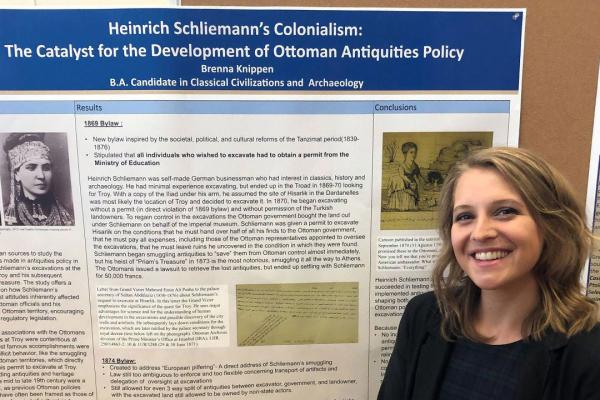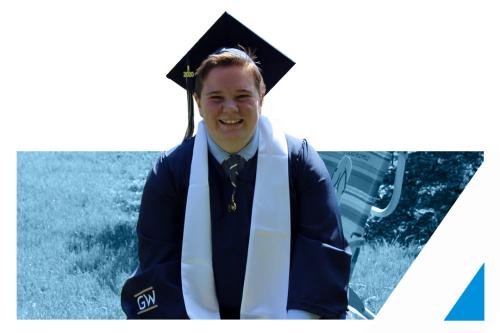Classical & Ancient Near Eastern Studies
Classical & Ancient Near Eastern Studies (CANES) encompasses the art, history and literature of ancient Greece, ancient Italy and the ancient Middle East. This discipline is the oldest and most central of all the humanities and at one time constituted the basic liberal arts education. Studies in the classics can lead to careers in teaching, history, archaeology, publishing, museum work and more.
Offering a major and a minor option, as well as a combined BA/MA degree program in CANES and Museum Studies, the CANES program provides students with a greater understanding of the modern world by concentrating on the sources and values of Western civilization. We offer small classes, a well-rounded curriculum and opportunities for departmental prizes. Students are also encouraged to join our local Eti Sigma Phi honor society chapter and our active Classics and Archaeology Club. Coursework frequently integrates local institutions such as the Library of Congress, Smithsonian museums, Archaeological Institute of America, Washington Classical Society and Dumbarton Oaks Museum.
Programs
CANES Tracks and Philosophy
Our curriculum strengthens a student's ability to communicate, reason and comprehend the structure and culture of ancient and modern societies. Students work through the ideas of ancient thinkers, study ancient history on the Acropolis in Athens, learn about the rise and fall of the Roman Empire and follow the stories of the gods in mythology.
Ancient history courses in CANES encompass both cultural and social scientific approaches to the understanding of human experiences of early times.
Greek and Latin Language Courses
The CNELC Department offers many language courses in Latin and Greek, which are open to students from across the university. Familiarity with ancient Greek and/or Latin can be useful for a variety of other degrees and career paths — particularly law and medicine. While we do not offer discrete degrees in these languages, some credits in Latin or Greek are required for the classics major and minor. See individual program pages for details on course requirements, or visit the GW Bulletin for course listings.
Placement Exams
To be placed into a section of a Greek or Latin course at GW without receiving credits, please take the online Greek Placement Exam or the Latin Placement Exam administered through the GW Language Center.
Pathways to Careers and Graduate Study
A degree in classical languages or studies can lead to a wide variety of successful careers, as famous figures who studied the field such as Anthony Fauci, J.R.R. Tolkien, Chris Martin, Tom Hiddleston, W.E.B. Du Bois and Benjamin Franklin can attest. Our own alumni have contributed to society through impactful careers in education and the arts, technology, international affairs and diplomacy, advocacy and much more.
Students often double major in CANES and archaeology, history, philosophy, political science, biology or even economics or business. Those planning to go to medical school or law school find that our courses give them special preparation, from learning Greek and Latin terminology to the study of ancient medicine and the foundations of international law.
Many students find they can easily combine courses necessary for professional school preparation with courses broadly based in the humanities. Since many professional schools want students who have linguistic skills and a broad knowledge of our cultural traditions, a major in CANES provides an ideal background for further study.
"If there is one decision I made at GW that changed the trajectory of my life and my time as an undergraduate student, it would be deciding to major in classics. During my term as SA president I relied on the skills learned in classics to shape my leadership style. Classics taught me how to craft compelling rhetoric and work with different groups of people, and it greatly improved my public speaking skills."
SJ Matthews
BA '20, Classical and Ancient Near Eastern Studies






